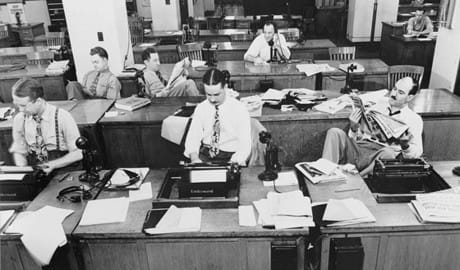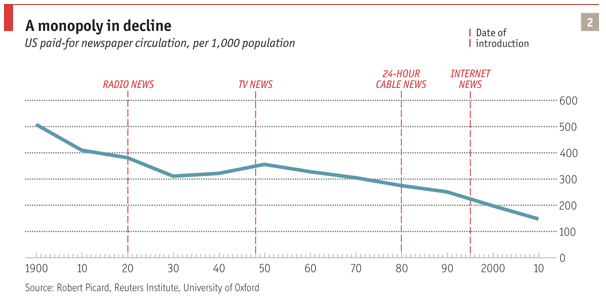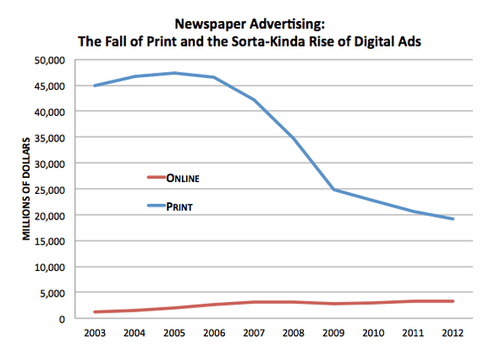If Jeff Bezos leads journalism to a new business model, it looks to be a future journalists want rather than one they fear.
Bezos is the CEO of Amazon and newly minted owner of The Washington Post, as his soon to be completed purchase of the paper was announced last month. Since then, Bezos has not revealed any detailed plans. But he expressed an appreciation for the importance of the paper and a desire to “experiment” and return the paper to a “golden era.”
Among the many reactions in the press, commentators questioned whether Bezos’s data-driven instincts would clash with newsrooms’ style, suggested the purchase represented a return to the model of rich businessmen buying newspapers as a vanity project and holding up the industry’s sagging fortunes with their personal wealth, and expressed optimism that his business savvy could reinvent the newspaper for the future while preserving its public benefits.
Bezos revealed some of his cards today, and the vision looks promising for journalists:
[Bezos] said the newspaper faced two business problems: the Rewrite Problem and the Debundling Problem.
In the former, the newspaper could spend weeks or months on a project that a Web site like the Huffington Post could rewrite “in 17 minutes.”
In the latter, whereas people once bought a paper and read and passed sections of it around, the Web has debundled the paper so that people can read one story and move on to a different site.
Newspapers have been in decline for decades as TV news, 24 hour cable news, and the Internet each lured away eyeballs and advertising dollars. (We won’t say too much as we’ve covered this topic before on Priceonomics.) Print media long refused to adapt, but its problems today may come as much from being too sensitive to new business realities rather than resistant.
Graph from The Economist
A common complaint with digital journalism is the propensity to rehash content from elsewhere on the web. Even without citing a representative sample of journalists, we feel confident telling readers that journalists don’t want to do this. They do not graduate from college, take jobs as digital editors at a fraction of their classmates’ pay, and then squeal in delight that they can re-report other stories all day rather than research and write their own.
To state the obvious, most journalists don’t like rehashing stories any more than they enjoy creating endless lists, “reporting” entertainment news, and titling articles and blog posts to draw in readers from Facebook and Twitter instead of writing sound headlines. But the business model of maximizing the number of pageviews and advertising dollars demands it.
Optimizing for digital advertising, however, may be shortsighted. Digital advertising simply doesn’t provide the revenue to staff foreign bureaus, so most major papers are betting on paywalls. The race to the bottom to lure in online viewers with Miley Cyrus twerking analysis and rewrites of other outlets’ content, however, is not a recipe for making a site stand out enough that people want to pay for access.
Graph from The Atlantic
Bezos’s vision for the Post is to make it a “daily ritual bundle.” He aims for profitability through growth and interesting articles, not staffing cuts. He’s aiming to make the Post’s content and the experience of consuming it – perhaps through compelling uses of tablets, perhaps in another way – compelling enough that readers pay to access it everyday rather than swooping in to read an article and then leaving. He doesn’t believe “information wants to be free.” He wants his writers to create unique content that will draw readers. And by keeping those readers at the Post, he wants to liberate journalists from the rewrite problem, the lists, the creation of media rather than journalism, and the link baiting headlines.
In reaction to Bezos’s words, journalist Matt Yglesias of Slate (owned by the Washington Post Company but not purchased by Bezos) commented that he was surprised to hear him focus on the “rewrite problem” as it’s usually a complaint of journalists, not tech people. That may be why he’s the right man for the job of guiding a preeminent newspaper going forward.
This post was written by Alex Mayyasi. Follow him on Twitter here or Google Plus. To get occasional notifications when we write blog posts, sign up for our email list.






